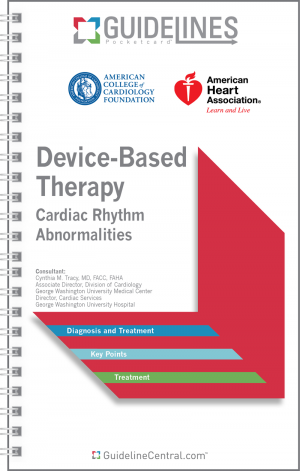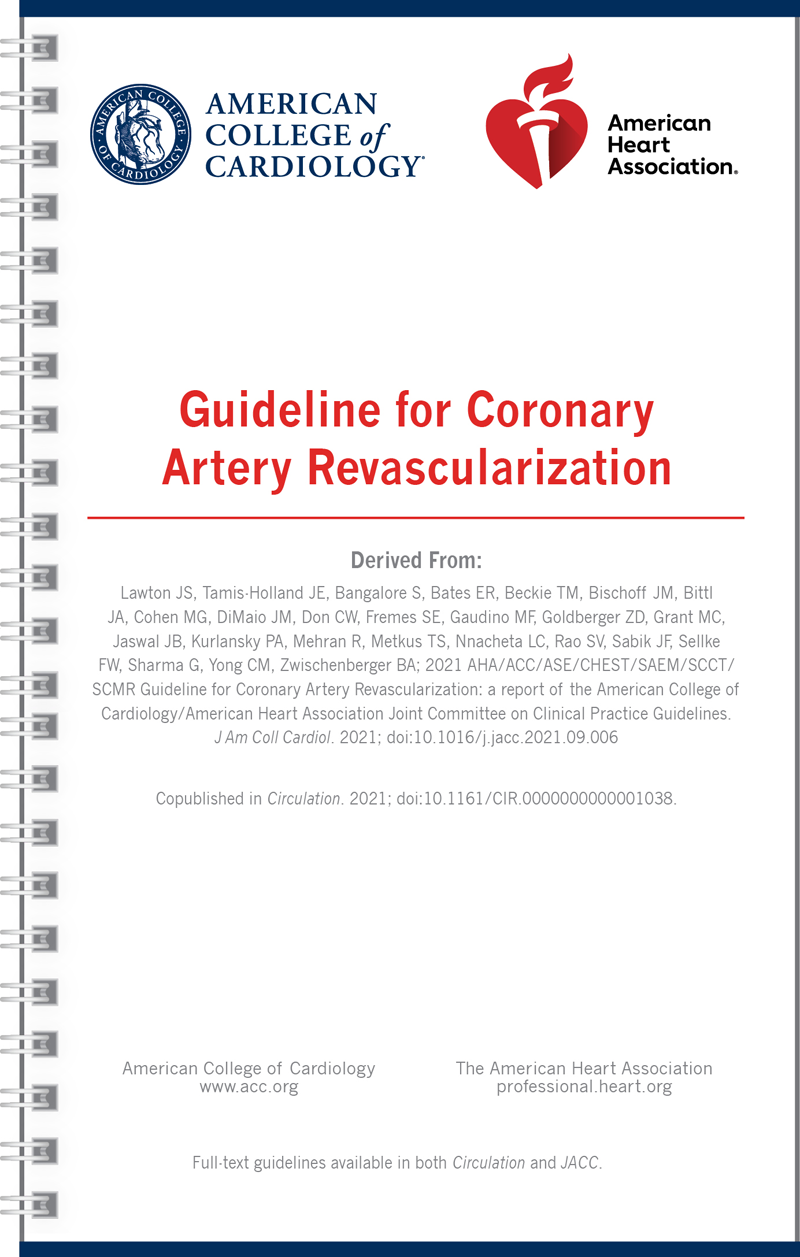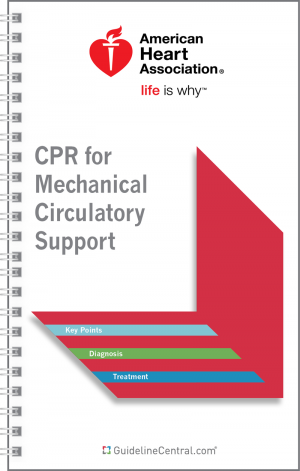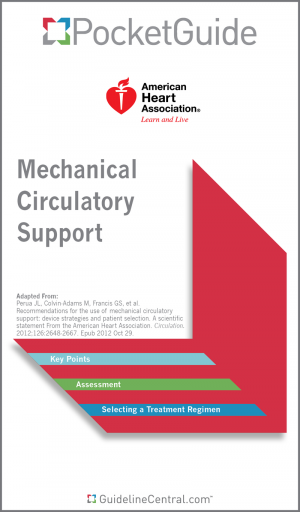Coronary Artery Revascularization
- 50 pages
- Spiral Bound
- 80# Aqueous Coating
- 4.25" x 7.25"
- Ships in 5 – 10 business days
- Key Points
- Improving Equity of Care in Revascularization and Shared Decision-Making
- Preprocedural Assessment and the Heart Team
- Defining Lesion Severity
- Revascularization in STEMI
- Revascularization in NSTE-ACS
- Revascularization in SIHD
- Situations in Which PCI or CABG Would Be Preferred
- Special Populations and Situations
- General Procedural Issues for PCI
- Pharmacotherapy in Patients Undergoing PCI
- General Procedural Issues for CABG
- Pharmacotherapy in Patients Undergoing CABG
- Pharmacotherapy in Patients After Revascularization
- Addressing Psychosocial Factors and Lifestyle Changes After Revascularization
- Revascularization Outcomes
- Figures and Algorithms
- Shared Decision-Making
- Phases of Patient-Centric Care in the Treatment of Coronary Artery Disease
- Indications for Revascularization in STEMI (Patients Without Fibrinolytics)
- Revascularization of Non–Infarct-Related Coronary Artery Lesions in Patients With STEMI
- Timing of Invasive Strategy in Patients With NSTE-ACS
- Revascularization in Patients With SIHD
- Use of DAPT for Patients After PCI
- Traditional and Psychosocial Risk Factors for ASCVD
- Tables
- Ideal Components of the Shared Decision-Making and Informed Consent Process
- Factors for Consideration by the Heart Team
- Assessment of Risk Factors Not Quantified in the STS Score
- Angiographic Features Contributing to Increasing Complexity of CAD
- Patient Clinical Status Definitions to Guide Revascularization
- Best Practices in the Catheterization Laboratory for Patients With CKD Undergoing Angiography
- Oral and Parental Antiplatelet Agents for Patients Undergoing PCI
- Anticoagulant Dosing During PCI
- Perioperative Anesthetic and Monitoring Considerations for CABG
- Best Practices for the Use of Bypass Conduits in CABG
- For purchases under 100 in quantity, we suggest placing the order directly through the website.
- We offer group/institutional licenses for multi-user accounts (discount amount varies depending on the number of users).
- We are proud to offer special discounts to medical schools, training programs, students and more.
- We offer bulk purchase discounts based on number of copies and number of titles.
Contact Us for more details
Our mission is to build healthier lives, free of cardiovascular diseases and stroke. That single purpose drives all we do. AHA's Professional Membership is a made up of a robust group of cardiovascular professionals who participate in discovery and dissemination of science.
The Society for Cardiovascular Angiography and Interventions promotes excellence in invasive and interventional cardiovascular medicine through education and representation, and the advancement of quality standards to enhance patient care.
Description
This resource is for informational purposes only, intended as a quick-reference tool based on the cited source guideline(s), and should not be used as a substitute for the independent professional judgment of healthcare providers. Practice guidelines are unable to account for every individual variation among patients or take the place of clinician judgment, and the ultimate decision concerning the propriety of any course of conduct must be made by healthcare providers after consideration of each individual patient situation. Guideline Central does not endorse any specific guideline(s) or guideline recommendations and has not independently verified the accuracy hereof. Any use of this resource or any other Guideline Central resources is strictly voluntary.
You can also find this product included in these bundles!
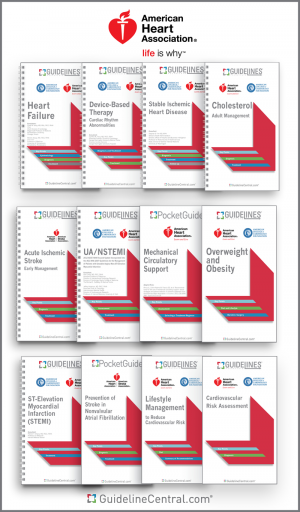
- Coronary Artery Revascularization
- CPR for Mechanical Circulatory Support
- Device-Based Therapy
- Diagnosis and Management of Aortic Disease
- Diagnosis and Treatment of Patients with Hypertrophic Cardiomyopathy
- Early Management of Patients With Acute Ischemic Stroke
- Evaluation and Diagnosis of Chest Pain
- Evaluation and Management of Patients with Bradycardia and Cardiac Conduction Delay
- Evaluation and Management of Patients With Syncope
- Heart Failure
- Management of Adults with Congenital Heart Disease
- Management of Blood Cholesterol
- Management of Patients with Atrial Fibrillation
- Management of Patients with Chronic Coronary Disease
- Management of Patients With Ventricular Arrythmias and the Prevention of Sudden Cardiac Death
- Mechanical Circulatory Support
- Mechanical Circulatory Support — Ambulatory and Community Patient Care
- Non-ST-Elevation Acute Coronary Syndromes
- Perioperative Cardiovascular Evaluation and Management of Patients Undergoing Noncardiac Surgery
- Peripheral Artery Disease Lower Extremity
- Prevention Of Stroke In Nonvalvular Atrial Fibrillation
- Prevention of Stroke In Women
- Prevention, Detection, Evaluation, and Management of High Blood Pressure in Adults
- Primary Prevention of Cardiovascular Disease
- Primary Stroke Prevention
- ST-Elevation Myocardial Infarction (STEMI)
- Stable Ischemic Heart Disease
- Supraventricular Tachycardia
- Valvular Heart Disease
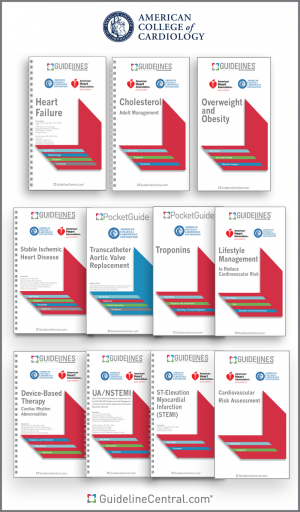
- Coronary Artery Revascularization
- Device-Based Therapy
- Diagnosis and Management of Aortic Disease
- Diagnosis and Treatment of Patients with Hypertrophic Cardiomyopathy
- Evaluation and Diagnosis of Chest Pain
- Evaluation and Management of Patients with Bradycardia and Cardiac Conduction Delay
- Evaluation and Management of Patients With Syncope
- Heart Failure
- Management of Adults with Congenital Heart Disease
- Management of Blood Cholesterol
- Management of Patients with Atrial Fibrillation
- Management of Patients with Chronic Coronary Disease
- Management of Patients With Ventricular Arrythmias and the Prevention of Sudden Cardiac Death
- Non-ST-Elevation Acute Coronary Syndromes
- Perioperative Cardiovascular Evaluation and Management of Patients Undergoing Noncardiac Surgery
- Peripheral Artery Disease Lower Extremity
- Prevention, Detection, Evaluation, and Management of High Blood Pressure in Adults
- Primary Prevention of Cardiovascular Disease
- ST-Elevation Myocardial Infarction (STEMI)
- Stable Ischemic Heart Disease
- Supraventricular Tachycardia
- Valvular Heart Disease
Related Guidelines

Peripheral Artery Disease Lower Extremity
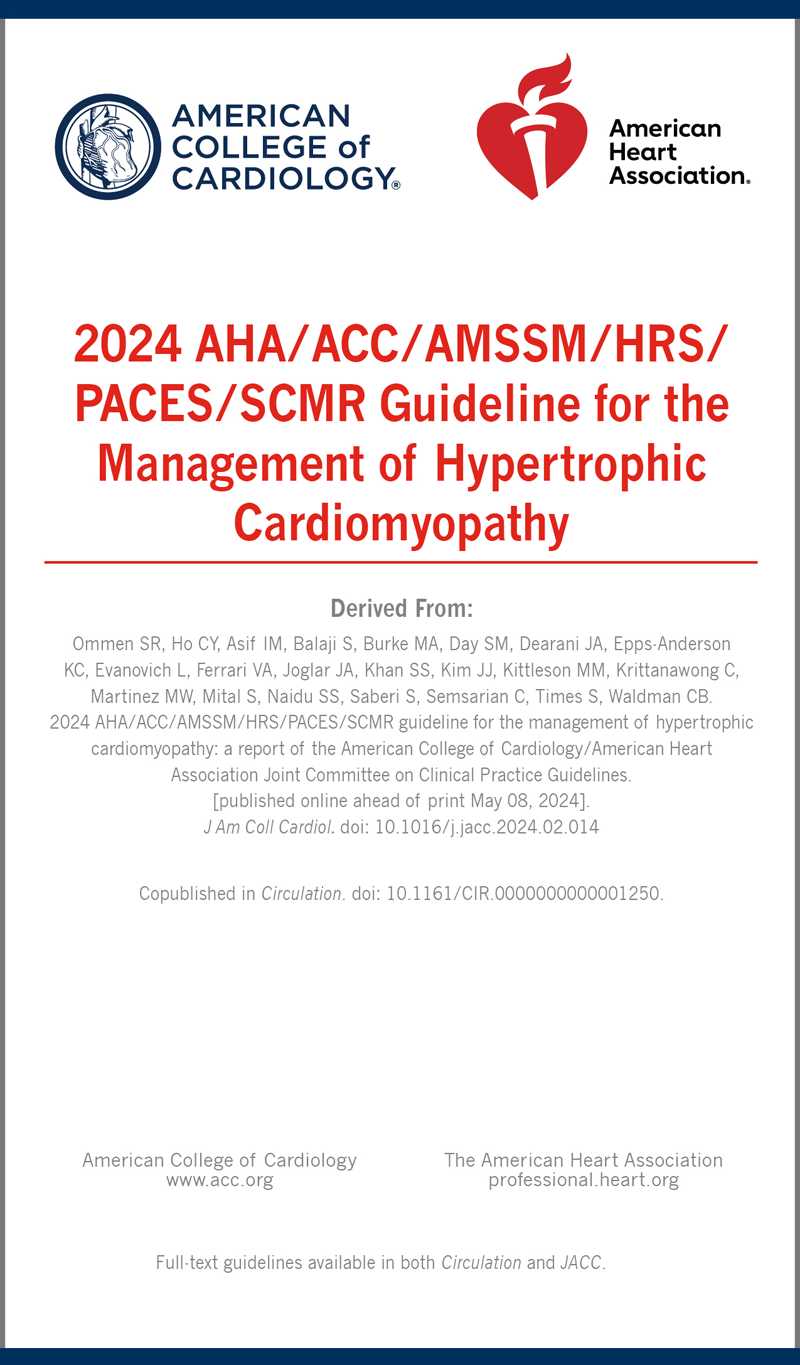
Diagnosis and Treatment of Patients with Hypertrophic Cardiomyopathy
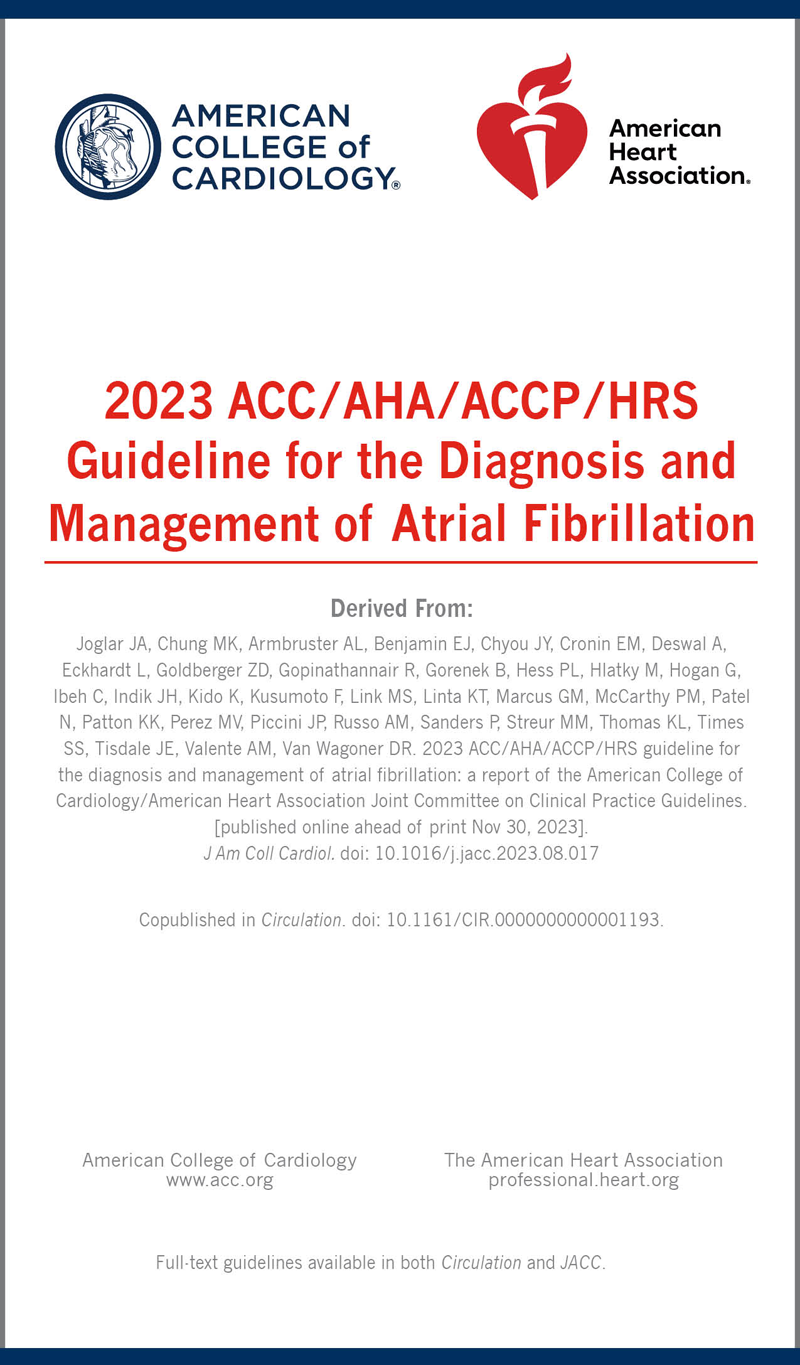
Management of Patients with Atrial Fibrillation
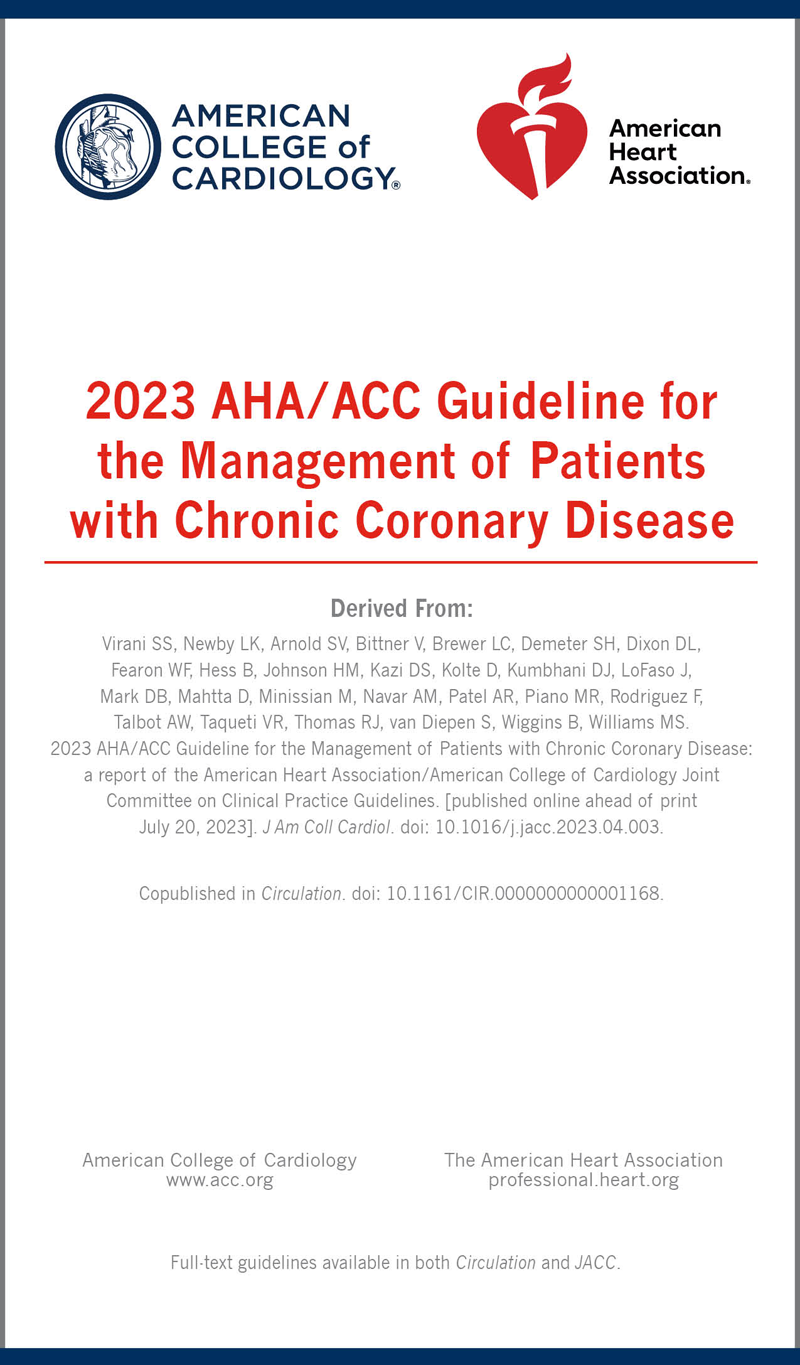
Management of Patients with Chronic Coronary Disease
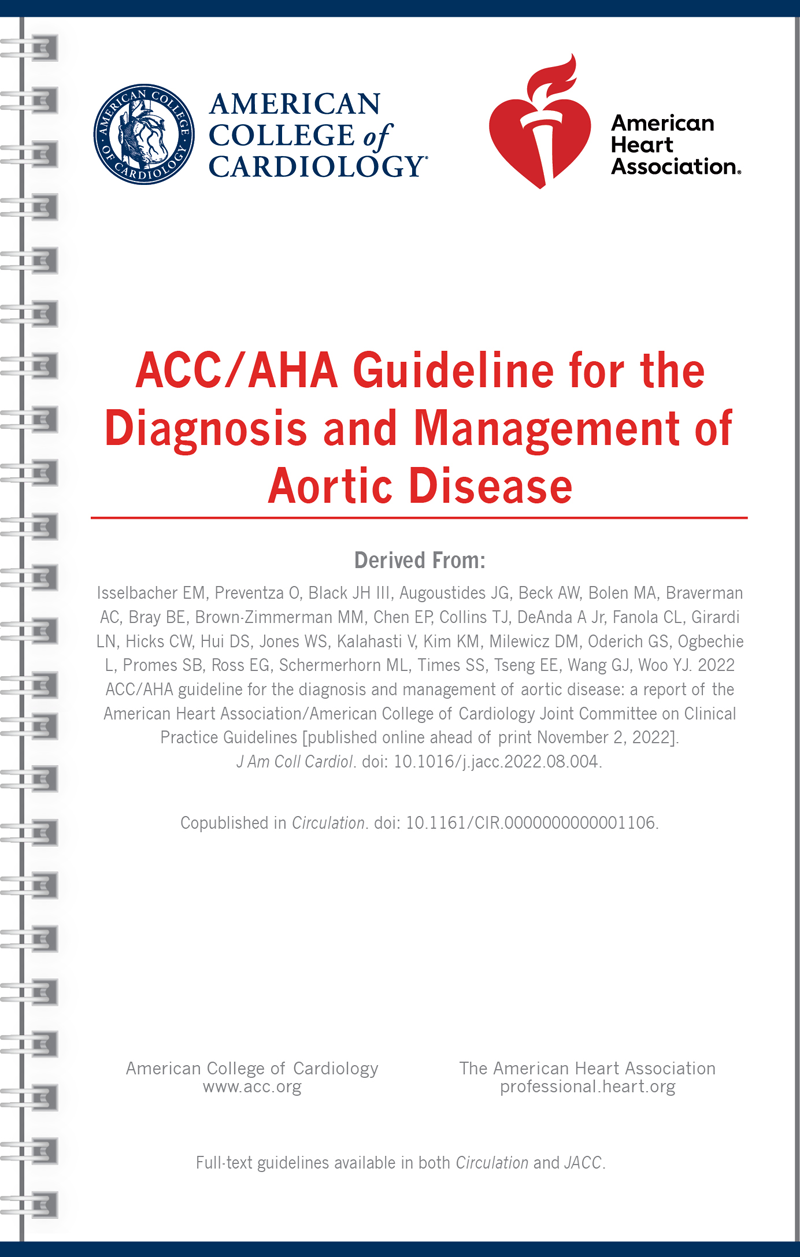
Diagnosis and Management of Aortic Disease
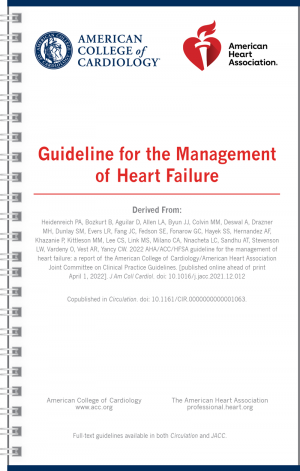
Heart Failure
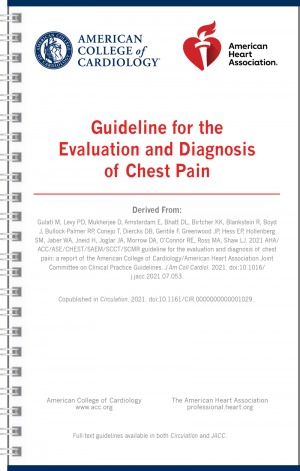
Evaluation and Diagnosis of Chest Pain
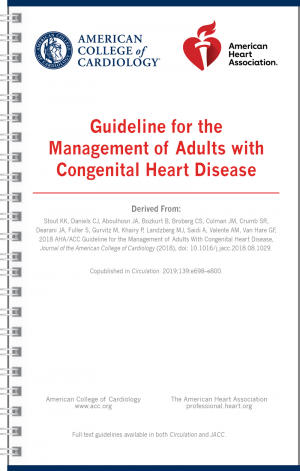
Management of Adults with Congenital Heart Disease
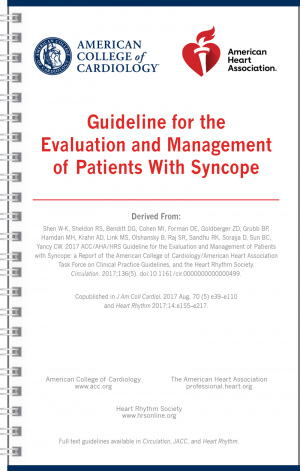
Evaluation and Management of Patients With Syncope
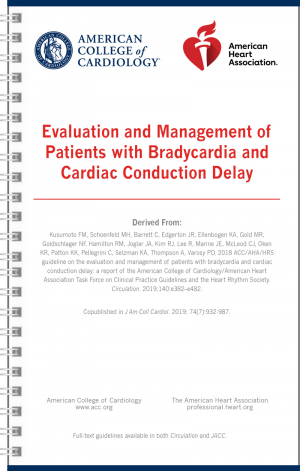
Evaluation and Management of Patients with Bradycardia and Cardiac Conduction Delay
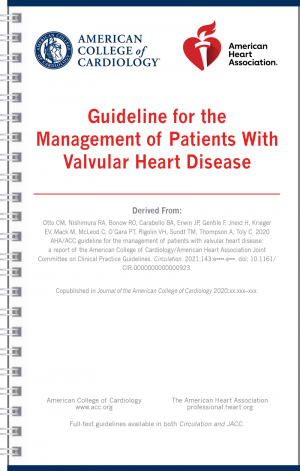
Valvular Heart Disease
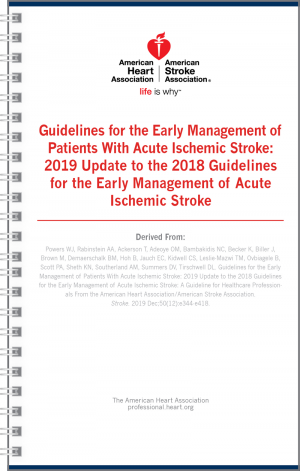
Early Management of Patients With Acute Ischemic Stroke
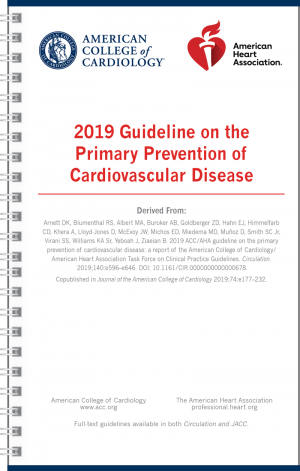
Primary Prevention of Cardiovascular Disease
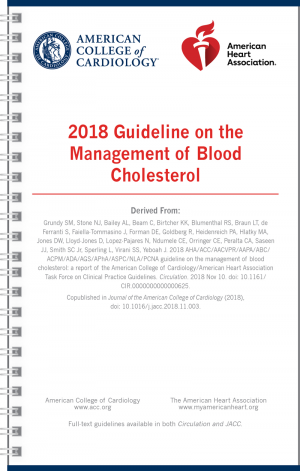
Management of Blood Cholesterol
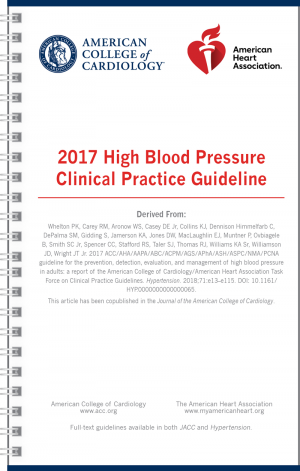
Prevention, Detection, Evaluation, and Management of High Blood Pressure in Adults
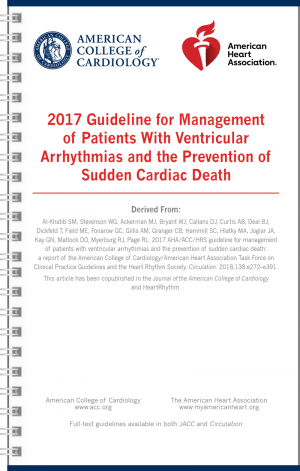
Management of Patients With Ventricular Arrythmias and the Prevention of Sudden Cardiac Death
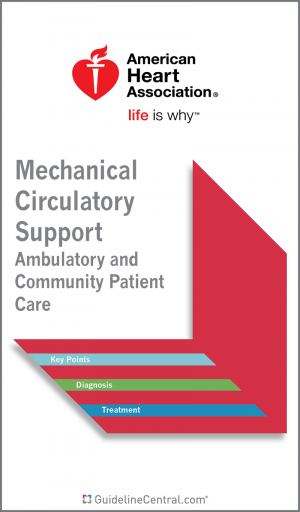
Mechanical Circulatory Support — Ambulatory and Community Patient Care
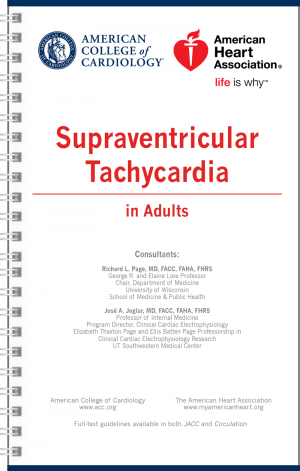
Supraventricular Tachycardia
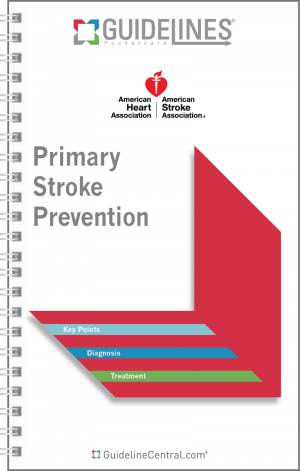
Primary Stroke Prevention
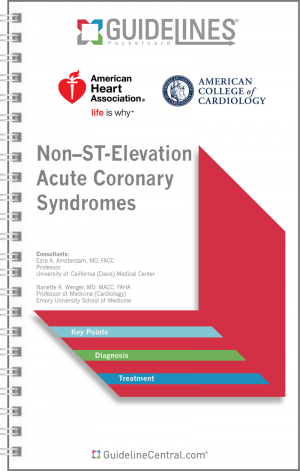
Non-ST-Elevation Acute Coronary Syndromes
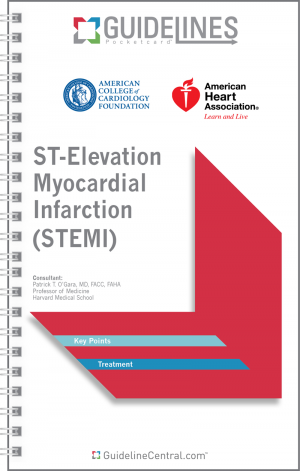
ST-Elevation Myocardial Infarction (STEMI)
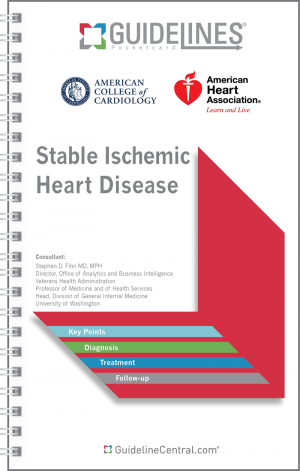
Stable Ischemic Heart Disease
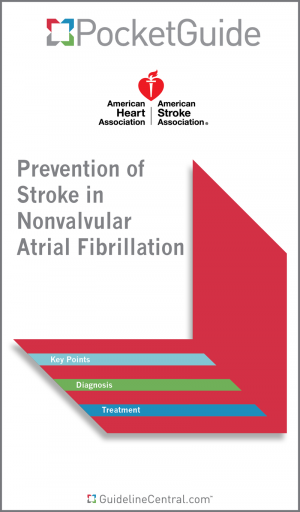
Prevention Of Stroke In Nonvalvular Atrial Fibrillation
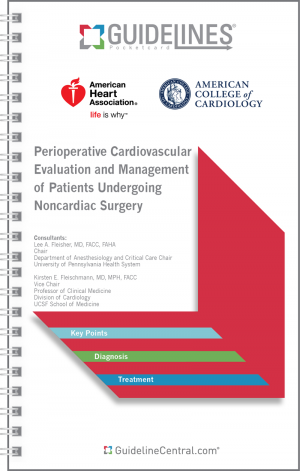
Perioperative Cardiovascular Evaluation and Management of Patients Undergoing Noncardiac Surgery
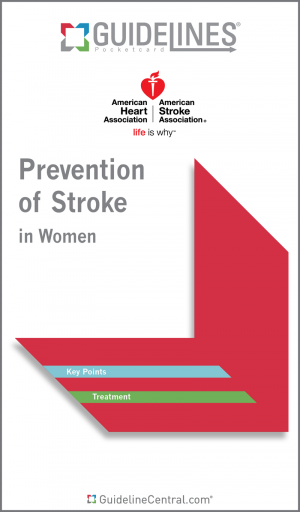
Prevention of Stroke In Women
